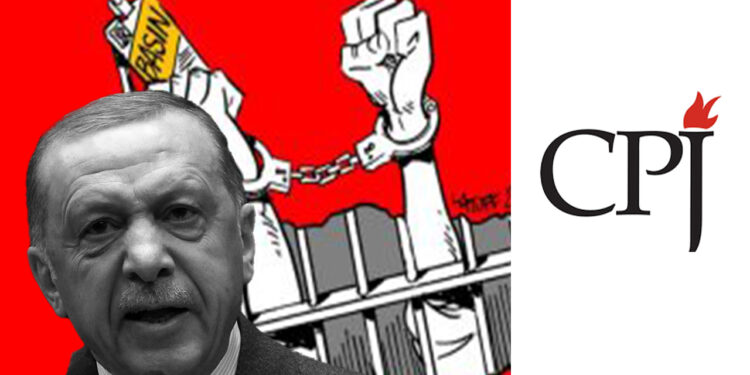Journalism watchdog CPJ has joined a call coordinated by Europe’s Media Freedom Rapid Response (MFRR) team for the European Union to prioritise press freedom in its relations with Turkey.

The Committee to Protect Journalists (CPJ) has joined a call coordinated by Europe’s Media Freedom Rapid Response team to draw international attention to Turkey’s suppression of critical journalism.
The call, made public on Wednesday, calls on European governments and policymakers to prioritise press freedom in their relations with Turkey, and place media protection “at the heart” of future diplomatic relations with the country.
Signatories of the joint statement included the CPJ, Freedom House, the Media and Law Studies Association, PEN International, America, Canada and Norway, the Platform for Independent Journalism, Reuters without Borders, and 11 other international associations that work to monitor and protect journalists and press freedom.
The prestigious group consider the arrest of journalists, infringement on media groups’ liberties, censorship, and the domestic law to combat what the Turkish government considers disinformation among urgent violations of fundamental rights.
The latest case to draw international condemnation involved the Tuesday arrest of veteran journalist Merdan Yanardağ from a live broadcast for speaking out against isolation policies in prisons. Yanardağ said the government’s policies were in violation of the country’s own laws.
A wave of arrests involving numerous journalists marred Turkey’s presidential and parliamentary elections in May. There are currently at least 58 journalists in Turkish prisons, securing the country’s place in the top five jailers of journalists worldwide in 2022. Kurdish journalists in particular have been in the government’s crosshairs.
The Disinformation Act that passed in October last year, dubbed the censorship law by the opposition, has introduced up to three years in prison for journalists who “publicly disseminate misleading information”, which does not have objective criteria to prove. Journalist Sinan Aygül was the first to receive a prison sentence under the new bill, for reporting on the alleged rape of a child by a Turkish police officer.
Earlier this week, a court ordered the removal of close to 100 news stories and tweets from prominent journalistic organisations as well as private citizens. The purged report was written by Reuters, and detailed a bribery scheme that allegedly involved Turkish President Recep Tayyip Erdoğan’s son Bilal Erdoğan.








Leave A Comment